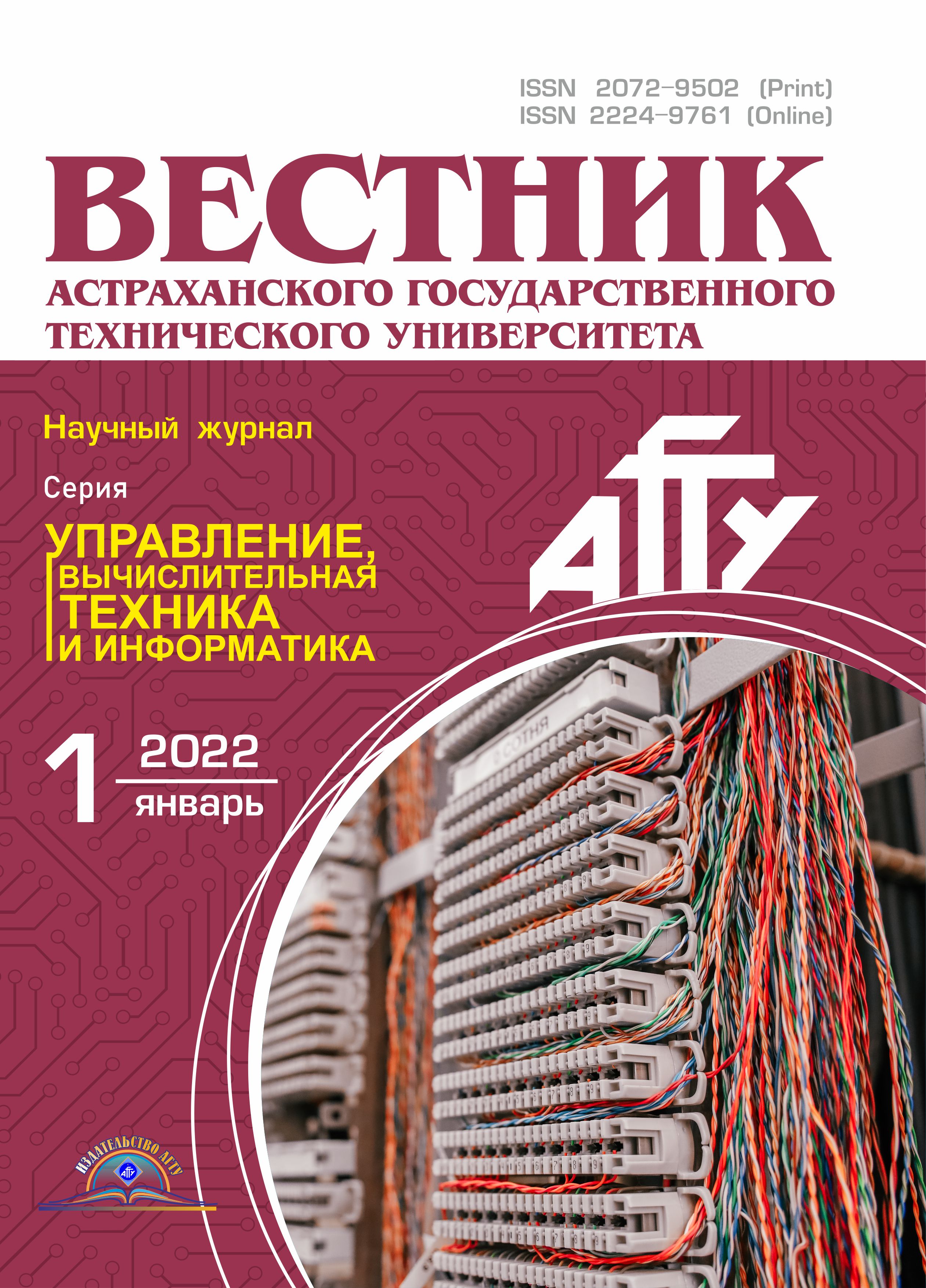Russian Federation
Astrakhan, Russian Federation
The paper highlights the key factors for the development of the transport and logistics industry in the context of the digital transformation of society. The simulation model is shown as a digital twin of the transport and logistics system. A definition of a transport and logistics project is given, and its main (production / delivery of packages to a warehouse / terminal, loading and unloading operations with packages, storage of packages, transportation of packages) and additional (processing/reconstruction of packages; money movement) processes are separated. The technological process of planning and realizing the transport and logistics operations is considered in detail. There have been singled out the specific features of the transport and logistics process, including many stochastic factors, necessitating the use of simulation modeling methods. In terms of the theory of organizational systems, the structure of the management system for a transport and logistics project is proposed. The managed entities - the processes of the transport and logistics project - are described and structured in detail. The control actions, parameters of the external environment and the state of the transport and logistics process are highlighted. A model of decision-making by controlled subjects has been built. It is noted that the value of management efficiency is determined by the chosen strategy for the development of the transport and logistics process. A simulation model of a transport and logistics project for the delivery of equipment for a wind power plant is considered using the system analysis of processes. The description of the submodels of the simulation model is given in accordance with the developed generalized structure of the transport and logistics process management. The experiments have been carried out, the optimal production rates have been identified for a transport and logistics project of delivery of equipment for a wind power plant
transport and logistics project, cargo package, transportation processes, management, simulation model, production rate
1. Kak budut razvivat'sya transport i logistika v blizhayshem buduschem? Obzor tendenciy i faktorov razvitiya otrasli na osnove ezhegodnogo oprosa top-menedzherov zarubezhnyh kompaniy, provedennogo PwC. URL: https://glonassgps.com/kak-budut-razvivatsa-transport-i-logistika-v-blizajsem-budusem (data obrascheniya: 20.04.2021).
2. Cifrovaya transformaciya. URL: https://www.sap.com/cis/insights/digital-transformation.html (data obrascheniya: 20.04.2021).
3. Petrov A. V. Imitaciya kak osnova tehnologii cifrovyh dvoynikov // Vestn. Irkut. gos. tehn. un-ta. 2018. T. 22. № 10 (141). S. 56-66.
4. Levitin I. E., Mayboroda V. P. Cifrovaya ekonomika v zadachah upravleniya i ekspertnoy ocenki transportno-logisticheskih proektov i processov ih zhiznennogo cikla // Kachestvo. Innovacii. Obrazovanie. 2017. № 7 (146). S. 71-76.
5. Hermann M., Pentek T., Otto B. Design principles for industrie 4.0 scenarios // 2016 49th Hawaii International Conference on System Sciences (HICSS) (5-8 Jan. 2016). Article 7427673. P. 3928-3937. DOI:https://doi.org/10.1109/HICSS.2016.488.
6. Serrano-Hernandez A., Faulin J., Hirsch P., Fikar C. Agent-based simulation for horizontal cooperation in logistics and transportation: From the individual to the grand coalition // Simulation Modelling Practice and Theory. 2018. V. 85. P. 47-59.
7. Kulakov A. D., Dmitriev V. A., Salogubova E. V. Suschestvuyuschie podhody k ocenke social'no-ekonomicheskih effektov ot realizacii transportno-logisticheskih proektov // Ekonomika i upravlenie: problemy, resheniya. 2021. T. 1. № 1 (109). S. 63-70.
8. Pyataev M. V. Ocenka ozhidaemoy effektivnosti proektov sozdaniya transportno-logisticheskih centrov // Region: ekonomika i sociologiya. 2009. № 3. S. 198-211.
9. Nyrkov A. P. Avtomatizirovannoe upravlenie i optimizaciya tehnologicheskih processov v transport-nyh uzlah: dis. … d-ra tehn. nauk. SPb., 2003. 304 c.
10. Burkov V. N., Gubko M. V., Korgin N. A., Novikov D. A. Teoriya upravleniya organizacionnymi sistemami i drugie nauki ob upravlenii organizaciyami // Problemy upravleniya. 2012. № 4. S. 2-10.
11. Burkov V. N., Korgin N. A., Novikov D. A. Control mechanisms for organizational-technical systems: problems of integration and decomposition // IFAC-PapersOnLine. 2016. V. 49-32, P. 001-006. DOI.org/10.1016/j.ifacol.2016.12.180.
12. Novikov D. A. Teoriya upravleniya organizacionnymi sistemami. M.: Izd-vo MPSI, 2005. 584 s.
13. Makarenko A. Vvedenie v setecentricheskie in-formacionno-upravlyayuschie sistemy. URL: http://www.rdcn.ru/estimation/2010/03042010.shtml (data obrascheniya: 20.04.2021).
14. Hanova A. A. Prinyatie upravlencheskih resheniy na osnove mul'tiaspektnogo integrirovannogo modelirovaniya slozhnyh sistem // Vestn. Astrahan. gos. tehn. un-ta. Ser.: Upravlenie, vychislitel'naya tehnika i informatika. 2016. № 4. S. 99-108.
15. Protalinskiy O., Khanova A., Shcherbatov I. Simulation of Power Assets Management Process // Studies in Systems, Decision and Control. 2019. V. 199. P. 88-501.
16. Bondareva I. O., Shendo M. V., Luneva T. V., Khanova A. A. Logical-probabilistic and simulation modeling as a toolkit for complex analysis and risk management of a cargo port // E3S Web of Conferences. TPACEE-2020. 2020. V. 224. P. 02027. DOI.org/10.1051/e3sconf/202022402027.
17. Hartmann S. Generating scenarios for simulation and optimization of container terminal logistics // OR Spectrum. 2004. V. 26. P. 171-192. DOI.org/10.1007/s00291-003-0150-6.
18. Silva V. M. D., Novaes A. G. Analysis and simulation of collaboration policies among manufacturing industries and its effects on the maritime transportation cost // Marine Systems & Ocean Technology. 2017. V. 12. P. 65-79. DOI.org/10.1007/s40868-017-0024-4.
19. Durán J. M. What is a Simulation Model? // Minds & Machines. 2020. V. 30. P. 301-323. DOI.org/10.1007/s11023-020-09520-z.
20. Mazza R. M. Simulation-based optimization in port logistics // 4OR-Q J. Oper. Res. 2012. V. 10. P. 313-314. DOI.org/10.1007/s10288-011-0184-6.















